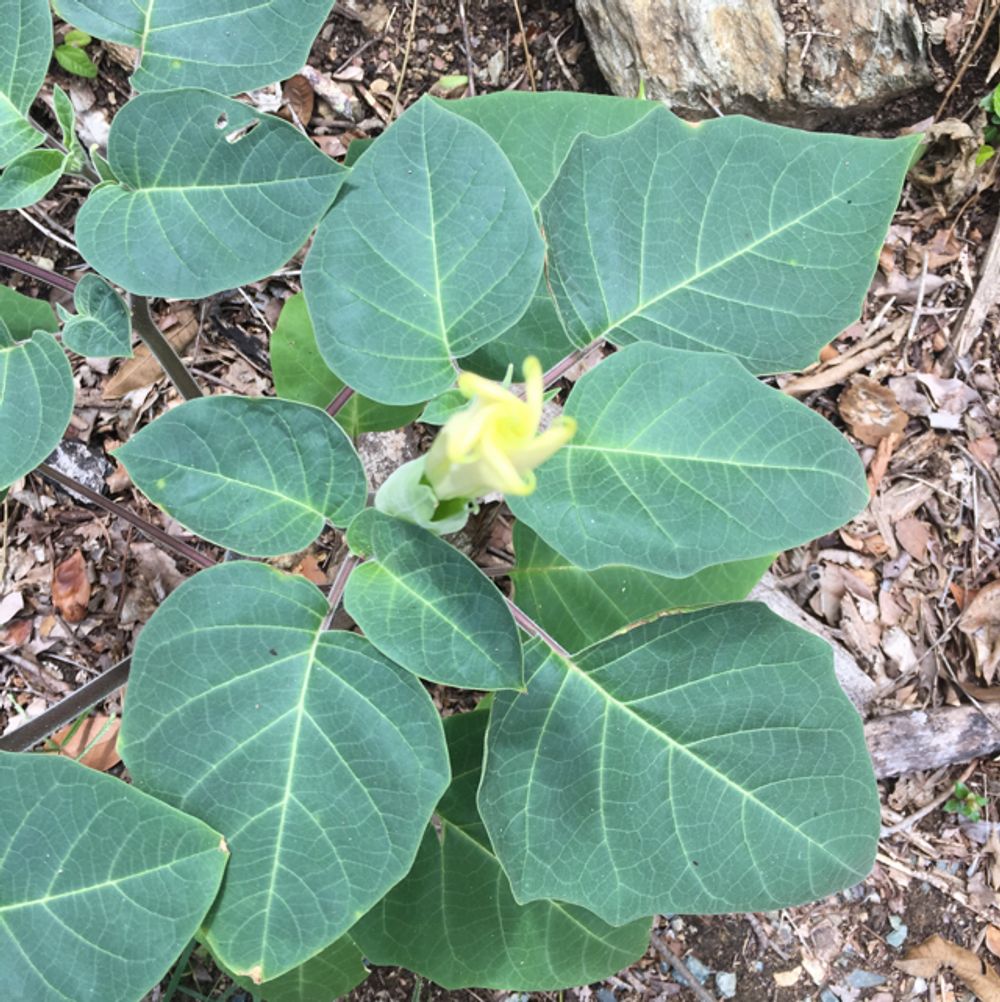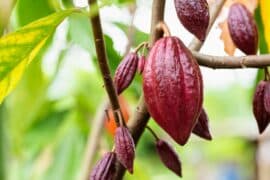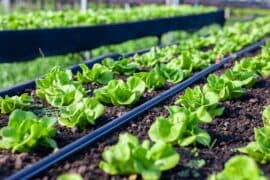Jimsonweed
(Datura)

Description
“Pet poisonous” – Toxic parts: entire plant esp. seeds Datura is a genus of nine species of poisonous vespertine flowering plants belonging to the family Solanaceae. They are commonly known as daturas, but also known as devil's trumpets, not to be confused with angel's trumpets, its closely related genus Brugmansia. They are also sometimes called moonflowers, jimsonweed, devil's weed, hell's bells, thorn-apple, and many more. Its precise and natural distribution is uncertain, owing to its extensive cultivation and naturalization throughout the temperate and tropical regions of the globe. Its distribution within the Americas and North Africa, however, is most likely restricted to the United States, Mexico and Southern Canada in North America, and Tunisia in Africa where the highest species diversity occurs. All species of Datura are poisonous, especially their seeds and flowers. Some South American plants formerly thought of as Datura are now treated as belonging to the distinct genus Brugmansia (Brugmansia differs from Datura in that it is woody, making shrubs or small trees, and it has pendulous flowers, rather than erect ones). Other related taxa include Hyoscyamus niger, Atropa belladonna, Mandragora officinarum, Physalis, and many more. In India it has been referred to as "Poisonous" and as an aphrodisiac. In little measures it was used in Ayurveda as a medicine from the ancient times. It is used in rituals and prayers to Shiva. It is also used in Ganesh Chaturthi. All Datura plants contain tropane alkaloids such as scopolamine, hyoscyamine, and atropine, primarily in their seeds and flowers. Because of the presence of these substances, Datura has been used for centuries in some cultures as a poison. There can be a 5:1 toxin variation between plants, and a given plant's toxicity depends on its age, where it is growing, and the local weather conditions. These variations make Datura exceptionally hazardous as a drug. Datura toxins may be ingested accidentally by consumption of honey produced by several wasp species, including Brachygastra lecheguana, during the Datura blooming season. It appears that these semi-domesticated honey wasps collect Datura nectar for honey production which can lead to poisoning. In some parts of Europe and India, Datura has been a popular poison for suicide and murder. From 1950 to 1965, the State Chemical Laboratories in Agra, India, investigated 2,778 deaths caused by ingesting Datura. The US Centers for Disease Control and Prevention reported accidental poisoning resulting in hospitalization for a family of six who inadvertently ingested Datura used as an ingredient in stew. In some places, it is prohibited to buy, sell, or cultivate Datura plants.
Taxonomic tree:







